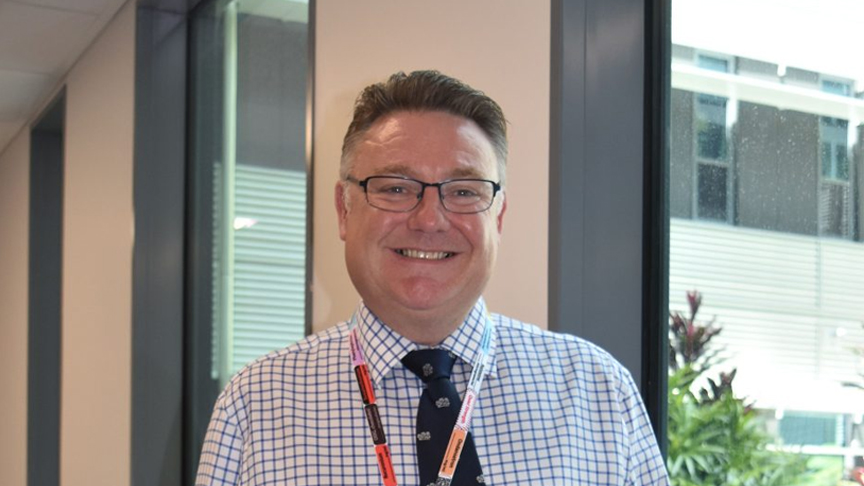
A Sunshine Coast Health Professor has received a $450,000 research grant to improve health service planning and outcomes for non-alcoholic fatty liver disease (NAFLD) patients.
The grant, funded by the Sunshine Coast Hospital and Health Service (SCHHS) Study, Education and Research Trust Fund (SERTF) along with Wishlist, was awarded to SCHHS Professor James O’Beirne, who said his research would result in valuable, world-first data.
“Unfortunately, NAFLD is highly prevalent in our community affecting 30 per cent of the adult population, and its incidence is increasing with more and more people now affected by liver cancer and late stage scarring of the liver.
“It will be sometime before we have drugs that can successfully treat NAFLD, so we need to plan services that are responsive, accessible and most of all acceptable to patients.
“Through interviews with people diagnosed with NAFLD, we will, for the first time in Australia and overseas, explore patients' perspectives about their supportive care needs, for example their health and emotional concerns, as well as their practical concerns about managing their condition.
“Through population-based linked data we will also be able to describe for the first time the patterns of resource utilisation and health service costs of patients with NAFLD.
“The studies will provide important information to guide health service planning for this patient group across the Sunshine Coast, and Queensland generally.
“We will identify deficiencies and inefficiencies in the healthcare system that may adversely affect patient outcomes and suggest mechanisms for improvement. Our studies will also include a review of healthcare disparities between regional and metropolitan services.
“Australia is uniquely challenged by its geography with many patients living far from metropolitan centres where most tertiary liver centres are based. Historically, this has led to significant disadvantages for patients living in regional settings.
“Developing appropriate evidence-based care pathways and interventions will increase patients’ access to care and reduce inefficiencies and inequalities in NAFLD care, and deliver the best outcomes for the most patients at the lowest cost,” Professor O’Beirne said.
The SCHHS SERTF scheme is a long-standing initiative, which in 2021, with the support of Wishlist, funded 13 innovative and collaborative research projects, totalling $1.7 million.
Professor O’Beirne, who was awarded his grant in collaboration with Metro South Hospital and Health Service and QIMR Berghofer Medical Research Institute, said the grant meant a lot to him and the SCHHS hepatology team based at Sunshine Coast University Hospital.
“We have worked hard to develop a comprehensive hepatology service and a key component of that is research. Having active, collaborative research projects within the department fosters a culture of quality, curiosity and scientific rigour and will enthuse the next generation of clinician-scientists,” Professor O’Beirne said.
SCHHS Chief Executive Dr Peter Gillies agreed and said the SERTF research grants ultimately resulted in improved health outcomes for the Sunshine Coast community.
“We’re proud to have a clinical and research portfolio at SCHHS that is comparable to other major centres in Australia. These grants support our clinicians financially and practically and inspire a commitment to excellence in healthcare through research and innovation.
“By driving departments to elevate their outcomes we are ensuring our patients receive the best care possible," Dr Gillies said.
Wishlist CEO Lisa Rowe said the not-for-profit charity strongly believed in fostering the research culture of the local health service.
“We have directed more than $2 million in the past several years to support and develop medical research on the Sunshine Coast and intend to grow our research investment into the future,” Ms Rowe said.